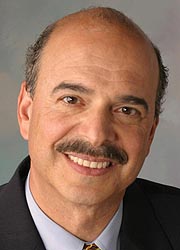Maryland Legislature Votes to Allow More Health Care Providers to Recommend Cannabis Therapy
 One the final day of session in 2016 for the Maryland General Assembly, the Senate approved HB 104 by a vote of 36-10. The bill expands the number of licensed health care providers who may recommend cannabis therapy to their patients under the Maryland Natalie M. LaPrade Maryland Medical Cannabis Commission program. The bill would still been to be signed by Governor Larry Hogan (R), and while he has generally supported medical cannabis legislation in the past, he has not weighed in yet on this bill.
One the final day of session in 2016 for the Maryland General Assembly, the Senate approved HB 104 by a vote of 36-10. The bill expands the number of licensed health care providers who may recommend cannabis therapy to their patients under the Maryland Natalie M. LaPrade Maryland Medical Cannabis Commission program. The bill would still been to be signed by Governor Larry Hogan (R), and while he has generally supported medical cannabis legislation in the past, he has not weighed in yet on this bill.
Under the original version of the law, only those with licenses in good standing from the Maryland State Board of Physicians were eligible. Introduced by the only physician in the Maryland General Assembly, Dan Morhaim (D - Stevenson), the bill changes the term to from "certifying physician” to "certifying provider," and extends eligibility to licensed dentists, podiatrists, nurse practitioners, and nurse midwifes who are in good standing with their respective state licensing agency. Like physicians, each provider would have to submit a treatment plan proposal to the Commission that must be approved before they can make written certifications under the program.
Maryland joins at least two other states that have a more inclusive approach to the types of licensed health care providers who can make written recommendations under their state's medical cannabis program. While ASA does not have complete numbers for other states, Washington State allows physicians, physician assistants, osteopathic physicians, naturopaths and advanced registered nurse practitioners to recommend under state law. New Mexico also has an inclusive approach, but does so by granting eligibility to health care providers "licensed in New Mexico to prescribe and administer drugs that are subject to the Controlled Substances Act."
Based on info provided by the Maryland Department of Legislative Services, there are 258 registered nurses, 5,112 registered nurses, 436 podiatrists, and 5,178 dentists in the State. The State Board of Physicians reported in the 2015 annual report for the board that there are 30,628 active physician licenses, which means HB 104 would increase the pool of eligible providers by more than a 1/3rd. This will help facilitate safe and legal access for patients who primarily obtain their health care from one of the types of providers that would be added through the bill.
If signed by Governor Hogan, the bill would take effect on July 1, 2017. Dispensaries are expected to open in Maryland in early 2017.
Share this page





















